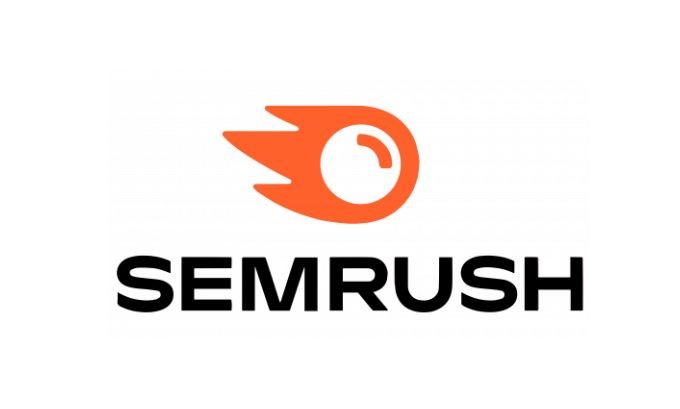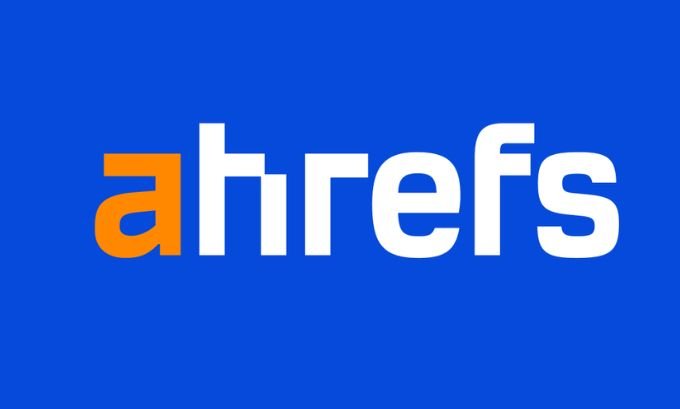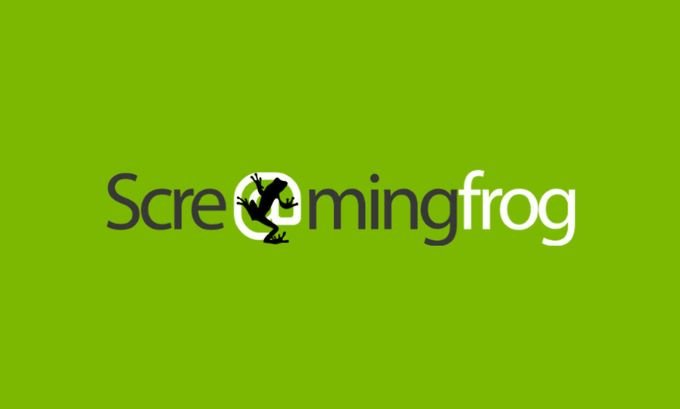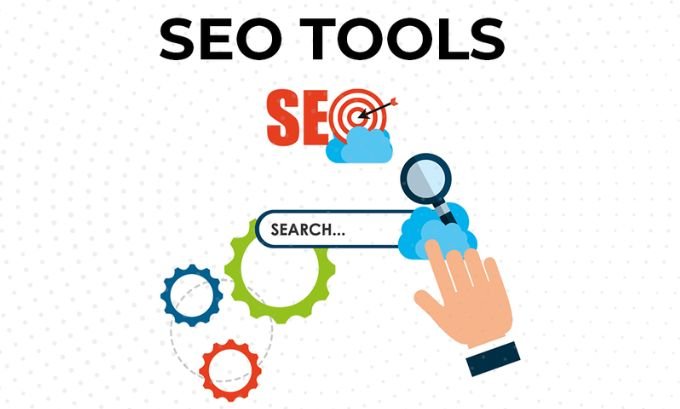Choosing the right SEO tools can feel overwhelming. With thousands of options on the market, how do you know which ones deliver real results without breaking the bank? After investing thousands of dollars and over a decade into testing countless platforms, I’ve compiled the ultimate list of the best paid and free SEO tools I rely on daily to drive growth for my agency and clients.
This guide breaks down 24 essential tools for every aspect of search engine optimization, from technical audits to Content Optimization. Whether you’re a beginner or a seasoned pro, you’ll find platforms here that can elevate your strategy and help you dominate the search results in 2025 and beyond.
Table of Contents
What Are SEO Tools and Why Do You Need Them?
SEO tools are software and platforms designed to help you improve your website’s visibility in search engines like Google. They provide data and insights that are impossible to gather manually, allowing you to make strategic decisions about your keyword strategy, competitor analysis, and technical website health. Essentially, they take the guesswork out of SEO.
A solid tool stack is no longer a luxury; it’s a necessity. In 2023, search engines drove 23% of all website visits, making organic search a critical channel for growth. Using the right tools helps you analyze performance, identify opportunities, and execute strategies efficiently. Without them, you’re flying blind while your competitors are using data to get ahead.
My Personal Experience with Building an SEO Tool Stack
When I first started in SEO, my tool stack was simple: Google Search Console and Google Keyword Planner. They were free and gave me a foundational understanding of my site’s performance and potential keywords. This was enough to get my first few clients ranking for low-competition terms.
As my agency grew, so did our needs. We added Semrush to our arsenal for its all-in-one capabilities. It allowed us to perform deep-dive competitor analysis, finding keyword gaps we could exploit. For a specific client in the roofing industry, we used its Backlink Gap tool to identify high-authority domains linking to competitors. We then created a superior resource and reached out to those same sites, securing links that boosted our client’s domain authority and pushed them to the first page for their target keywords.
For Content Optimization, we integrated Surfer SEO. One of our blog posts was stuck on page two for a valuable keyword. After running it through Surfer, we identified missing NLP terms and restructured the content based on its recommendations. Within three weeks, the post jumped to the #3 spot, bringing in a 627% increase in organic clicks. More recently, we’ve started using ChatGPT not just for brainstorming but for data analysis, turning raw SERP data into actionable insights for our campaigns.
This evolution from basic free tools to a sophisticated, multi-platform stack shows that the “best” tool depends on your goals, budget, and expertise.
All-in-One SEO Platforms
These platforms aim to be your central hub for all things SEO, covering everything from keyword research to site audits.

1. Semrush
Semrush is a ridiculously powerful, all-in-one SEO platform. It’s often the first major tool agencies and in-house teams invest in because of its vast feature set.
What I Like / Strengths
- Keyword Gap Tool: This feature is a goldmine for competitive analysis. By entering your domain and a few competitors, you can instantly see keywords they rank for that you don’t. I often focus on the “Untapped” filter to find low-difficulty keywords for quick wins.
- Backlink Gap Tool: Similar to the keyword tool, this helps you analyze your competitors’ backlink profiles. You can see exactly where they are getting their links, which gives you a clear roadmap for your own link-building outreach.
- Comprehensive Project Tracking: You can set up projects for each website you manage, tracking keyword rankings, running site audits, and monitoring brand mentions from a single dashboard.
Areas for Improvement
- Overwhelming Interface: For beginners, the sheer number of tools and reports can be intimidating. It has a definite learning curve.
- Cost: The pricing can be steep for freelancers or small businesses, especially as you scale and need more projects or features.
2. Ahrefs
Ahrefs is another industry giant, famous for having one of the best backlink indexes on the web. While it offers a full suite of tools, its strength lies in competitor research.
What I Like / Strengths
- Site Explorer: This is my go-to for a quick and deep analysis of any website. It provides a clear overview of organic traffic, backlinks, and top keywords.
- Keyword Explorer: The “Lowest DR” filter is a unique feature that helps find keywords where low-authority websites are ranking. This is a great indicator of an uncompetitive SERP worth targeting.
- Content Explorer: You can find the most shared content for any topic, which is useful for brainstorming blog post ideas that have a proven track record of engagement.

Areas for Improvement
- Credit System: Ahrefs moved to a credit-based system, which can limit usage for power users on lower-tier plans. Running multiple reports can quickly eat up your monthly credits.
- Rank Tracker Accuracy: While generally good, I’ve found that other dedicated rank-tracking tools sometimes provide more accurate, up-to-the-minute data.
| Feature | Semrush | Ahrefs |
|---|---|---|
| Best For | All-in-one management, keyword gap analysis | Backlink analysis, competitor research |
| Unique Feature | Untapped keywords in Keyword Gap Tool | “Lowest DR” filter in Keyword Explorer |
| Pricing Model | Tiered plans based on features | Tiered plans with credit-based usage |
| Learning Curve | Intermediate to Advanced | Beginner to Intermediate |
Content Optimization & AI Tools
These tools use AI and NLP to help you create content that is perfectly tailored to search engine algorithms and user intent.
3. Surfer SEO
Surfer SEO guides you in writing content that is topically relevant and comprehensive. It analyzes top-ranking pages for your target keyword and provides a data-driven blueprint for you to follow.
What I Like / Strengths
- Content Editor: This provides real-time feedback on your writing, scoring your content based on the use of relevant terms (NLP), structure, and word count. It’s like having an SEO coach looking over your shoulder.
- Actionable Briefs: The tool generates detailed content briefs that include recommended structure, topics to cover, and questions to answer. This is perfect for handing off to a copywriter to ensure they hit all the right notes.
- Integration: It integrates directly with Google Docs and WordPress, making it easy to optimize content within your existing workflow.
Areas for Improvement
- Risk of Over-Optimization: If you focus too much on hitting a perfect score, your content can sound robotic. It’s a guide, not a rulebook.
- Focus is Solely on Content: It doesn’t offer the broader technical or backlink analysis features of an all-in-one suite.
4. Rankability
Rankability takes Content Optimization to the next level by blending multiple AI technologies, including Google’s NLP, IBM Watson, and OpenAI. It excels at creating highly detailed content briefs and outlines.
What I Like / Strengths
- AI-Powered Briefs and Outlines: With a single click, you can generate a complete content brief and an optimized outline based on NLP keywords. This saves hours of manual research.
- Collaborative Workflow: You can share a direct link to the content editor with your copywriter, allowing them to write and optimize within the platform.
- Customer Support: The weekly mastermind calls offer direct access to experts, helping users get the most value out of the tool—a unique and valuable perk.
Areas for Improvement
- Niche Tool: It’s hyper-focused on content creation and optimization. You’ll need other tools for keyword research and technical SEO.
- Newer Player: As a more recent entry into the market, it doesn’t have the same brand recognition as some competitors.
5. ChatGPT
While not a traditional SEO tool, ChatGPT has become indispensable for SEO professionals. Its power lies in its versatility. Most users only scratch the surface of its capabilities.
What I Like / Strengths
- Data Analysis: I’ve used ChatGPT to act as a data scientist. By feeding it SERP data from a crawl, I was able to analyze correlations between H1 tags and rankings for a data-driven blog post.
- Content Ideation and Outlining: It’s fantastic for brainstorming content ideas, generating outlines, and creating meta descriptions at scale.
- Versatility: From writing regex for Google Search Console to generating schema markup, its applications in SEO are nearly limitless.
Areas for Improvement
- Accuracy: It can “hallucinate” or provide inaccurate information. All outputs must be fact-checked and edited by a human expert.
- Requires Skilled Prompting: The quality of the output is entirely dependent on the quality of the input. You need to learn how to write effective prompts to get valuable results.
Technical SEO & Site Audit Tools
These tools are essential for diagnosing and fixing the technical issues that can hold your website back from ranking.
6. Screaming Frog SEO Spider
The Screaming Frog SEO Spider is the industry standard for website crawling and technical audits. It’s a desktop-based application that crawls any website and provides a massive amount of data.

What I Like / Strengths
- API Integrations: You can connect it with APIs from Google Search Console, Google Analytics, and Ahrefs. This allows you to overlay crawl data with performance metrics like clicks, impressions, and backlinks.
- Identifying Deep Pages: The “Crawl Depth” report instantly shows you pages that are buried too deep in your site architecture (more than 3 clicks from the homepage).
- Finding Orphan Pages: By connecting it to your sitemap and Google Analytics, you can identify pages that have no internal links pointing to them.
Areas for Improvement
- Resource Intensive: Crawling very large websites can consume a lot of your computer’s memory and processing power.
- Steep Learning Curve: The interface is packed with data and can be overwhelming for beginners. It’s truly a tool for technical SEO professionals.
Free SEO Tools from Google
Google provides a powerful suite of free tools that are essential for any SEO strategy.
7. Google Search Console
If you only use one SEO tool, it should be Google Search Console (GSC). It provides direct, first-party data on how Google sees and ranks your site.
What I Like / Strengths
- Performance Report: See exactly which queries bring users to your site, along with impressions, clicks, and average position. This is invaluable for finding “low-hanging fruit” keywords to optimize for.
- Index Coverage Report: GSC tells you which pages are indexed and if there are any issues preventing other pages from being indexed.
- Core Web Vitals Report: Monitor your site’s performance on key user experience metrics, which are a known ranking factor.
Areas for Improvement
- Data Lag: The data is typically delayed by about two days.
- Limited Competitive Analysis: It only provides data for your own website.
8. Google Keyword Planner
Part of the Google Ads platform, the Google Keyword Planner is a go-to tool for keyword research, providing search volume data directly from Google.
What I Like / Strengths
- Accurate Search Volume: While it often provides ranges, the data comes directly from Google’s advertising system, making it highly reliable for understanding keyword demand.
- CPC Data: The tool shows you the estimated cost-per-click for keywords, which is a great proxy for commercial intent. High CPC often means the keyword drives valuable traffic.
- Keyword Discovery: You can enter a seed keyword or a competitor’s URL to get a long list of related keyword ideas.
Areas for Improvemen
Frequently Asked Questions (FAQ)
1. What are the best free SEO tools for beginners?
For beginners, the Google Suite is the best place to start. Use Google Search Console for performance data, Google Keyword Planner for keyword ideas, and Google Analytics for traffic analysis. These tools provide a solid foundation without any cost.
2. Do I really need to pay for SEO tools?
While free tools are powerful, paid platforms like Semrush and Ahrefs offer a competitive edge with deeper data, competitor analysis, and workflow automation. Investing in a paid tool is often necessary to scale your efforts and compete in crowded niches.
3. How many SEO tools do I need?
Most professionals use a stack of 3-5 core tools. A typical setup includes an all-in-one platform (Semrush or Ahrefs), a Content Optimization tool (Surfer SEO), a technical crawler (Screaming Frog), and the free Google tools.
4. Can AI tools like ChatGPT replace traditional SEO tools?
Not entirely. ChatGPT is a powerful assistant for tasks like data analysis, brainstorming, and content creation, but it cannot replace the proprietary data and crawling capabilities of specialized SEO tools like Ahrefs or Screaming Frog. It complements them rather than replacing them.
5. What is the difference between Ahrefs and Semrush?
Both are leading all-in-one platforms. Historically, Ahrefs was known for its superior backlink index, while Semrush was stronger in keyword research and PPC data. Today, their feature sets are very similar, and the choice often comes down to personal preference for the user interface and specific workflows.
6. How do I choose the right SEO tool for my needs?
Start by defining your primary goal. Is it keyword research, technical audits, or link building? Look for a tool that excels in that area. Consider your budget and expertise level. Many tools offer free trials, so you can test them before committing.
7. Is Content Optimization software worth it?
Yes, if creating high-quality, relevant content is a priority. Tools like Surfer SEO and Rankability provide data-driven guidance that removes guesswork and ensures your content aligns with what both users and search engines want to see
Conclusion
The right set of SEO tools is a force multiplier for your strategy. However, a tool is only as good as the person using it. Platforms like Semrush and Ahrefs provide the data, Surfer SEO and Rankability guide your content, and Screaming Frog uncovers technical flaws, but success ultimately depends on your ability to translate those insights into action.
Start with the free essentials like Google Search Console, and as your needs and budget grow, strategically invest in platforms that solve your biggest challenges. By building a powerful and efficient tool stack, you can streamline your workflow, make smarter decisions, and achieve sustainable growth in the ever-evolving landscape of search.
If you’re looking to build proven systems for your agency, consider enrolling in Gacha Academy to learn how to scale your operations effectively.
For creators managing both content and SEO, Tokyo Mart offers productivity-enhancing gear and tools built for digital marketers.
About the Author
Omid Ghiam is an SEO consultant with over a decade of experience, having led SEO at Webflow ($4.2B valuation) and grown his personal blog to over 100,000 monthly visitors. He specializes in helping software companies achieve revenue growth through data-driven SEO and content marketing strategies.
References
- Gacha, C. (2025). Video Transcript on SEO Tools.
- Dean, B. (2023). “We Analyzed 912 Million Blog Posts. Here’s What We Learned About Content Marketing.” Backlinko.
- Fishkin, R. (2023). “Organic Search Traffic in 2023.” SparkToro.
- Google. (2025). “Google Search Console Help.”
- Semrush. (2025). “The Semrush Blog.”

